Democratic hopefuls for the U.S. presidency return to the debate stage on Tuesday evening with a new variable in play – the killing of Iranian general Qasem Soleimani on the orders of President Donald Trump and the ensuing fallout in the Middle East.
Six candidates, all white, have met the thresholds to debate in Iowa, fewer than three weeks before the Midwestern state holds the first nominating contest in the race to be the Democratic 2020 presidential nominee.
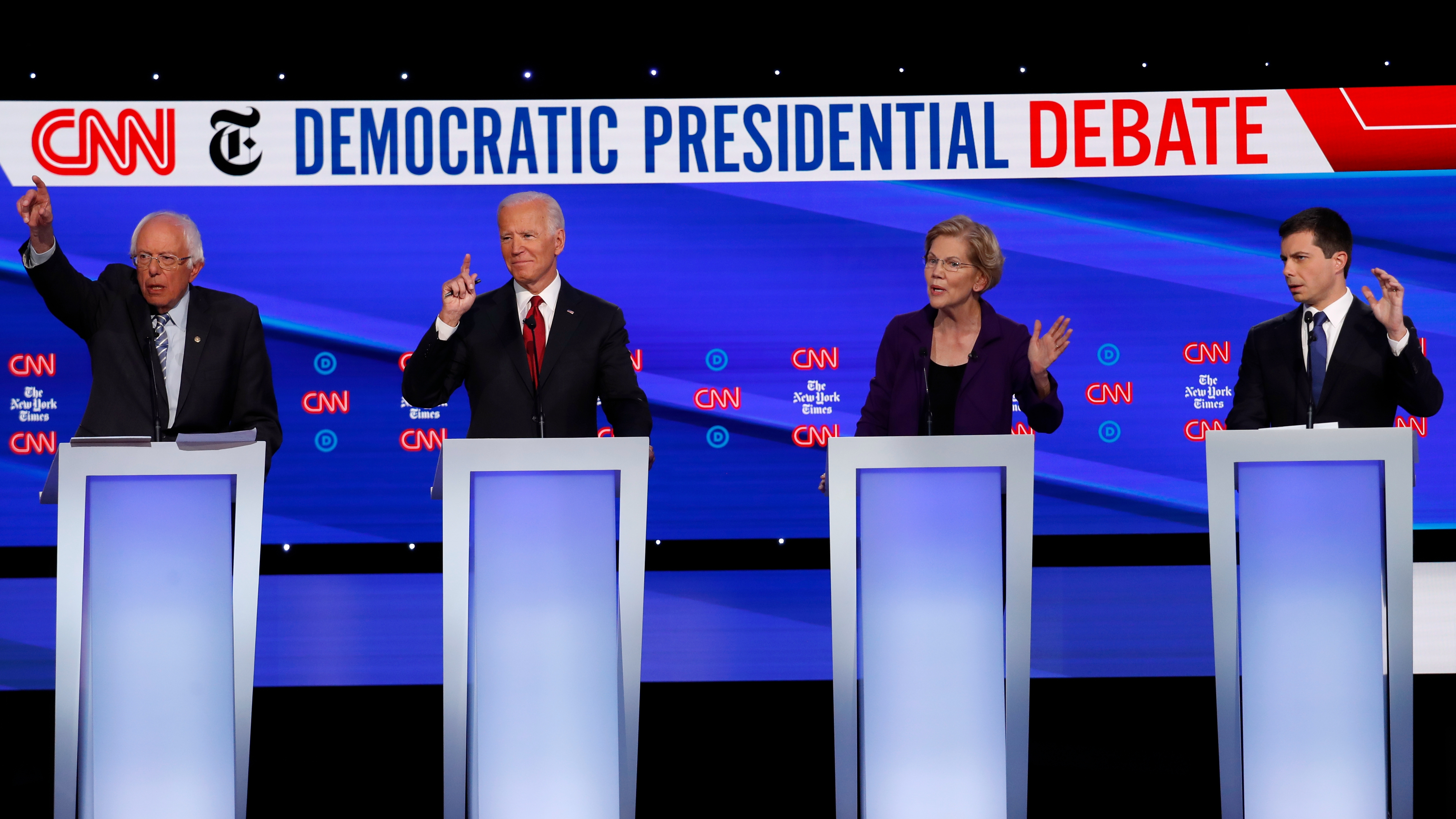
Democratic presidential candidates, from left, Bernie Sanders, Joe Biden, Elizabeth Warren and Pete Buttigieg take part in a debate at Otterbein University, Ohio, October 15, 2019. /AP Photo
Democratic presidential candidates, from left, Bernie Sanders, Joe Biden, Elizabeth Warren and Pete Buttigieg take part in a debate at Otterbein University, Ohio, October 15, 2019. /AP Photo
The high-stakes debate will feature former Vice President Joe Biden, former Mayor Pete Buttigieg, billionaire Tom Steyer and senators Bernie Sanders, Elizabeth Warren and Amy Klobuchar, with Andrew Yang missing out, Cory Booker dropping out the race and Michael Bloomberg again on the sidelines.
The Iran question
Foreign policy doesn't often play a decisive role in U.S. elections – the Iran hostage crisis and Jimmy Carter's loss in 1980 is an arguable exception – but debate over American deployments in the Middle East was a live issue in the Democratic contest long before the Soleimani strike.
While domestic concerns such as healthcare are likely to have greater electoral resonance in the long-term, the situation in Iran – the assassination, the retaliation, the accidental downing of a passenger jet and the protests that followed – is set to be a hot topic on Tuesday evening.
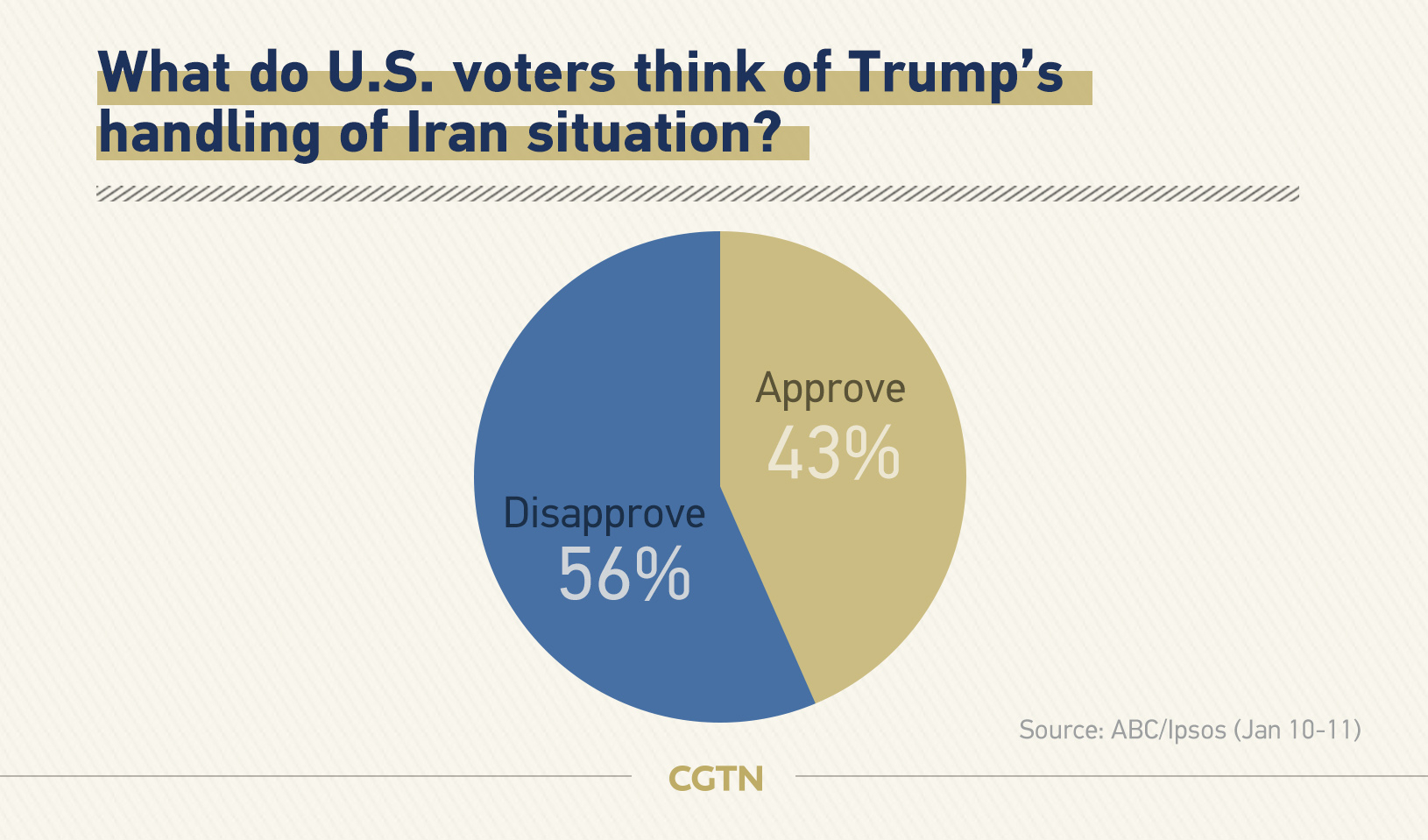
Biden is a foreign policy veteran, having served as chair of the Senate Foreign Relations Committee as well as vice president, but in previous debates has been challenged by Sanders over his initial support for the 2003 invasion of Iraq.
The latest Ipsos polling suggests Democratic voters are overwhelmingly opposed to Trump's handling of relations with Iran, with 90 percent disapproving and 82 percent indicating the killing of Soleimani has made the U.S. less safe.
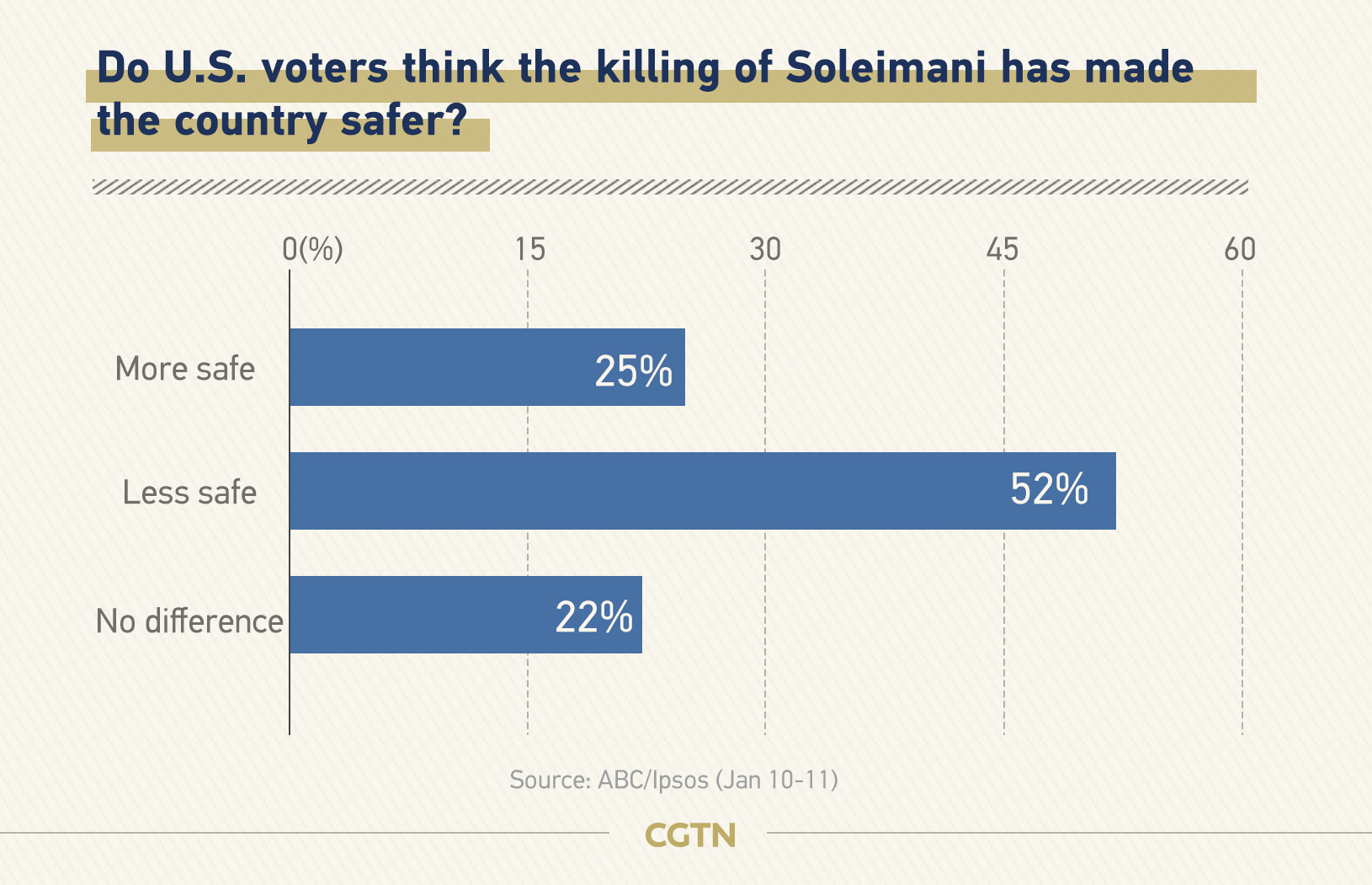
In statements ahead of the debate, the top tier Democratic candidates have tried to combine condemnation of both Trump's decision and Soleimani's history.
Biden said Soleimani "deserved to be brought to justice" but described the killing as "a hugely escalatory" in an initial statement, later asking "was the risk worth the reward?" Buttigieg struck a similar tone, telling CNN "just because he deserved it doesn't mean it was the right strategic move."
Warren and Sanders took a slightly different tack, with the Massachusetts senator tweeting that Trump's order was a "reckless move" and the "priority must be to avoid another costly war."
Sanders, the Vermont senator, also emphasized an antiwar position, and referred back to the Iraq war in an opinion article for CNN. "The lies, the jingoism, the false urgency of military action," he wrote, echoed the buildup to the 2003 invasion.
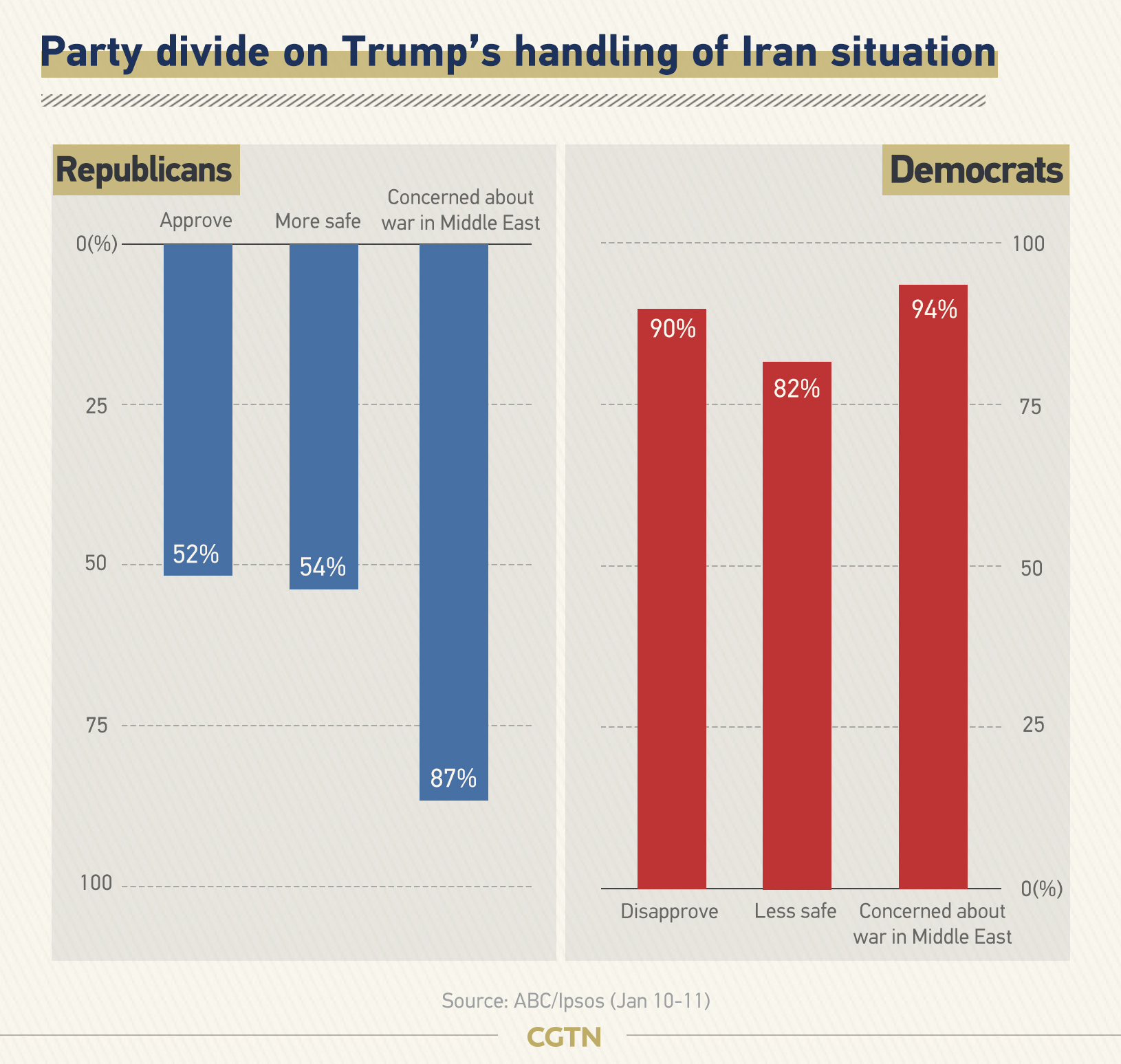
Polling suggests concerns over further U.S. involvement in wars in the Middle East are particularly strong among Democrats (94 percent in the Ipsos poll) and shared by a majority of Republican voters (52 percent).
Republican-leaning voters are also skeptical as to whether the administration's repeated assertion that the U.S. is "safer today" as a result of Soleimani's death is accurate – 54 percent agree, according to the Ipsos survey, significantly lower than Republican support for Trump on other issues.
Overall, the poll suggests a majority (56 percent) of Americans disapprove of Trump's handling of the Iran situation and only 25 percent believe the killing of Soleimani has made the U.S. safer.
Four-way fight in Iowa
Going into Tuesday night's debate the race to woo Iowans, win the caucuses on February 3 and score a bounce heading into the New Hampshire primary is intensifying.
Sanders, who on Monday was forced to deny he had told Warren in a private meeting that a woman couldn't win the White House in 2020, is the frontrunner according to the latest Des Moines Register poll, which shows a tight four-way battle for top spot.
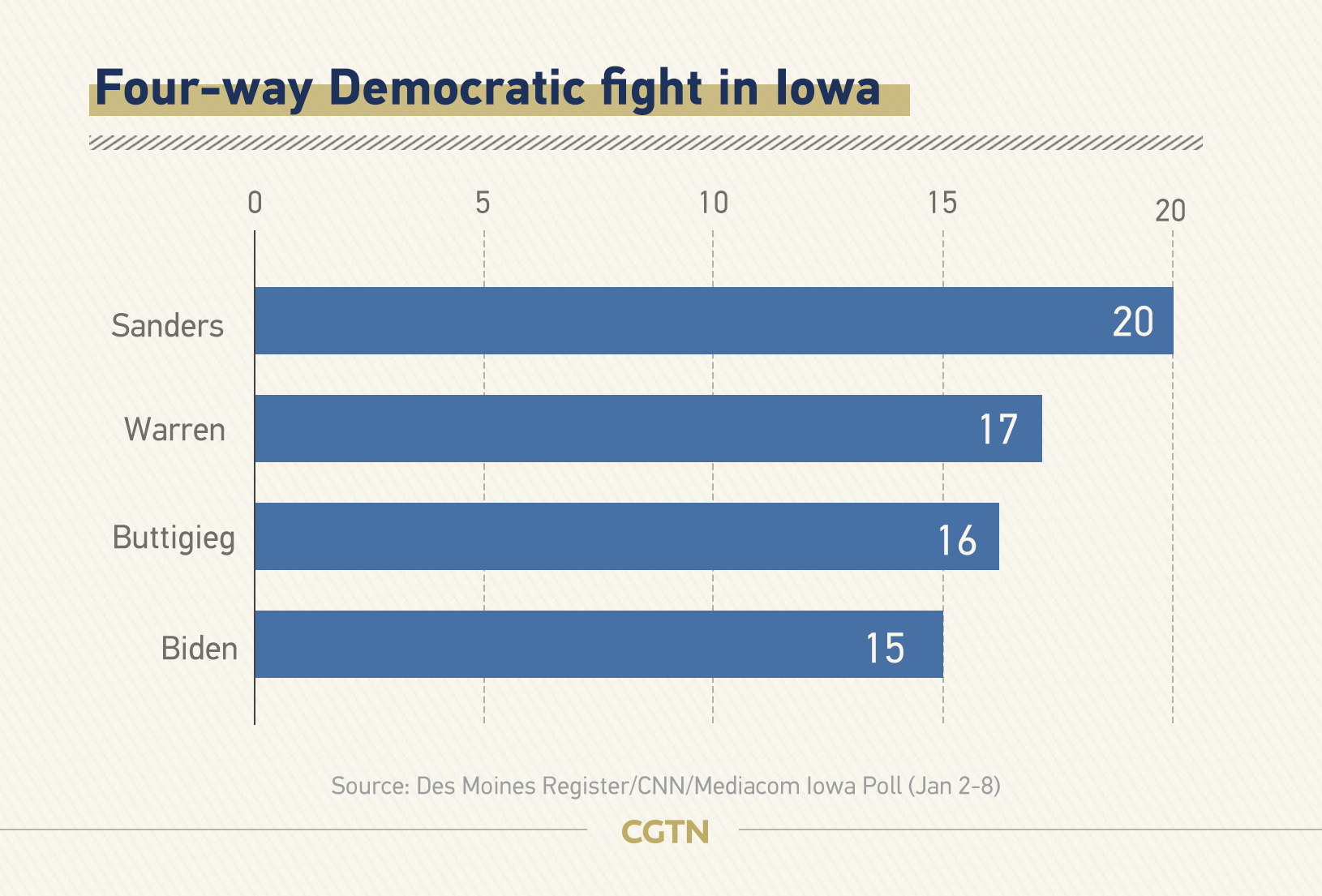
Biden is narrowly trailing Sanders, Warren and Buttigieg in Iowa but a strong performance in the state is less important for him than the other candidates. He retains a nine-point national lead in the RealClearPolitics polling averages and is in a strong position in the third and fourth contests – Nevada and South Carolina respectively.
Sanders is also strong in New Hampshire, but for Warren and particularly Buttigieg the Iowa caucuses are a vital test – both need a top three finish, and are likely to spar on the debate stage.
The 37-year-old former mayor of South Bend outperforms his national average in the polls by over 10 points in both Iowa and New Hampshire – the states will make or break his campaign.
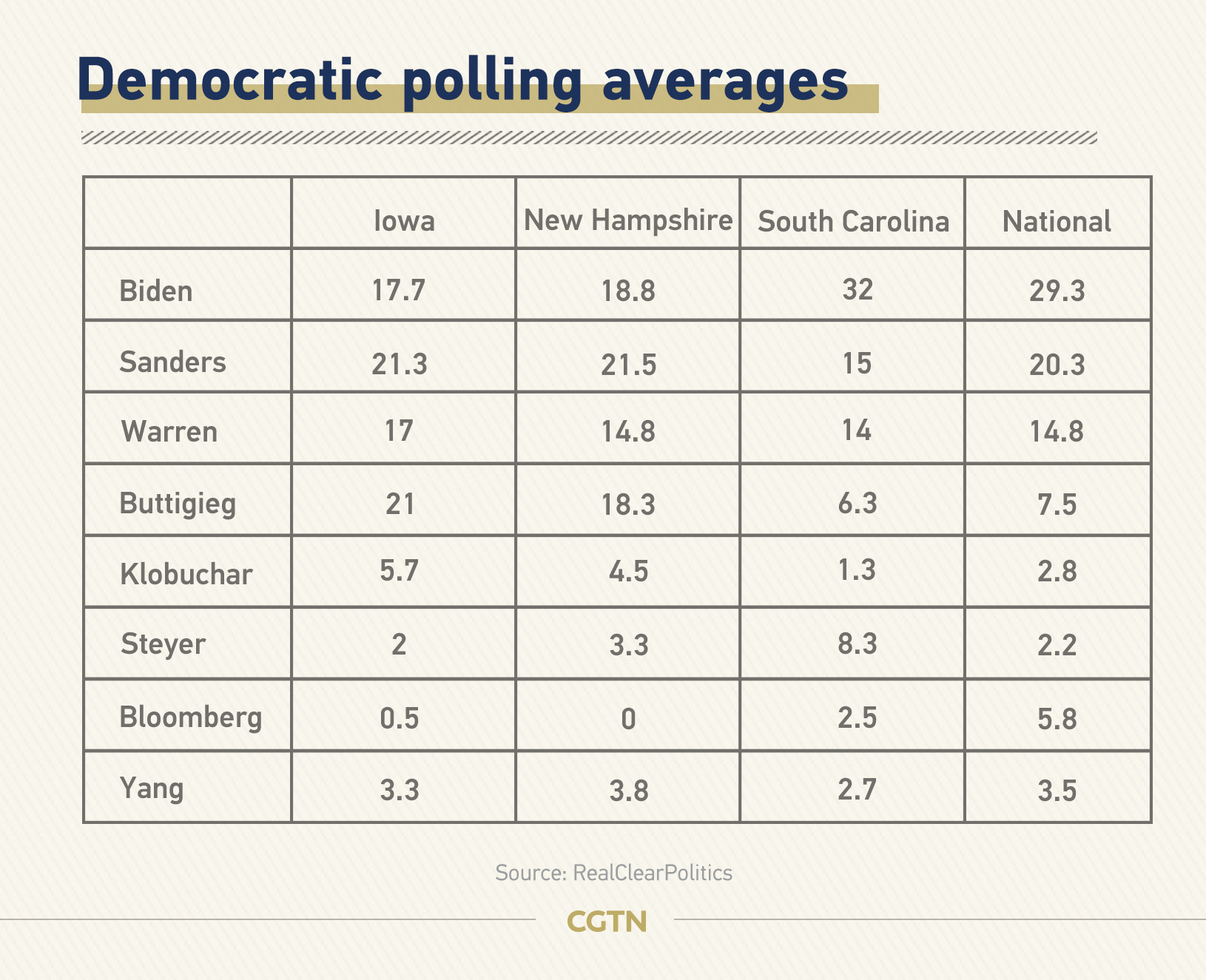
Warren has broader support across the country but has struggled to maintain the gradual momentum built in the second half of 2019. A long-expected clash between her and Sanders – old friends who hold some similar policy directions – has now broken into the open.
Politico reported on Sunday the Sanders campaign had briefed that Warren was unable to expand her support beyond affluent liberals. Warren said that she was disappointed Sanders would try to "trash" her campaign, and on Monday CNN ran a story – supported by Warren but denied by Sanders – claiming that the Vermont senator had told Warren a woman couldn't win in 2020.
Another problem could be added to the bubbling tensions soon, with the Trump impeachment trial in the Senate likely to begin next week. Given that all senators must attend six days a week for a trial that could last around a month, Sanders, Warren and Klobuchar are likely to be off the trail at a key juncture in the campaign.
For Klobuchar, who has debated and fundraised effectively without reward in the polls, the debate is a last big chance to make her case. Like Buttigieg, she is unlikely to be able to sustain a campaign far past New Hampshire without a strong showing in the first two states.
The six-person debate should offer billionaire Steyer, polling at under three percent average in Iowa, a bigger platform and more speaking time to make an argument for a candidacy that is yet to take off.
(Graphics by Du Chenxin)